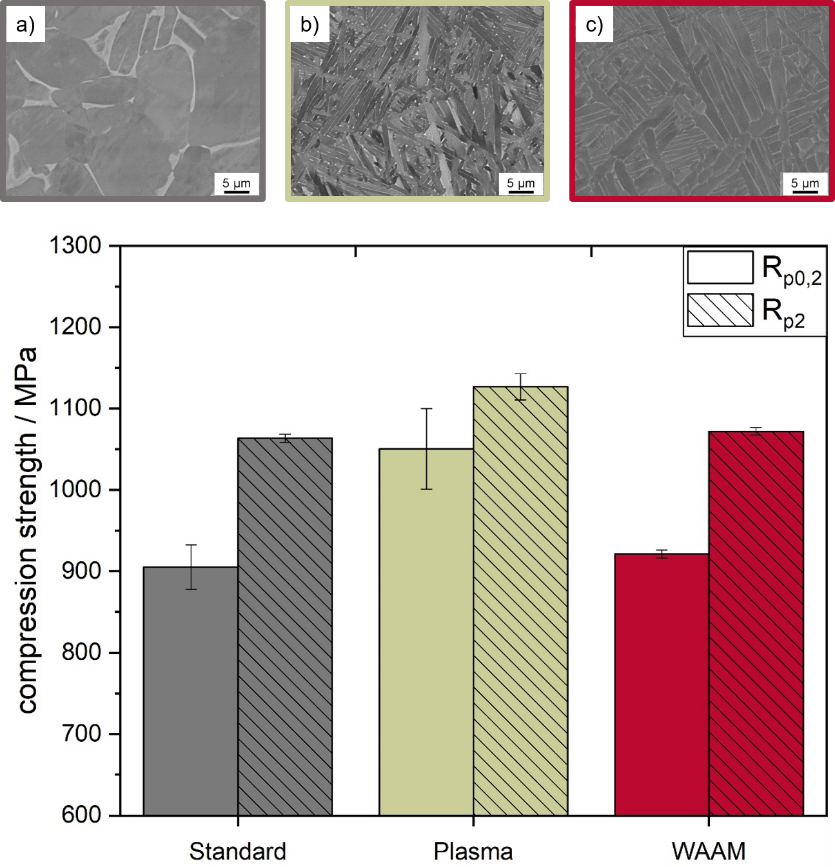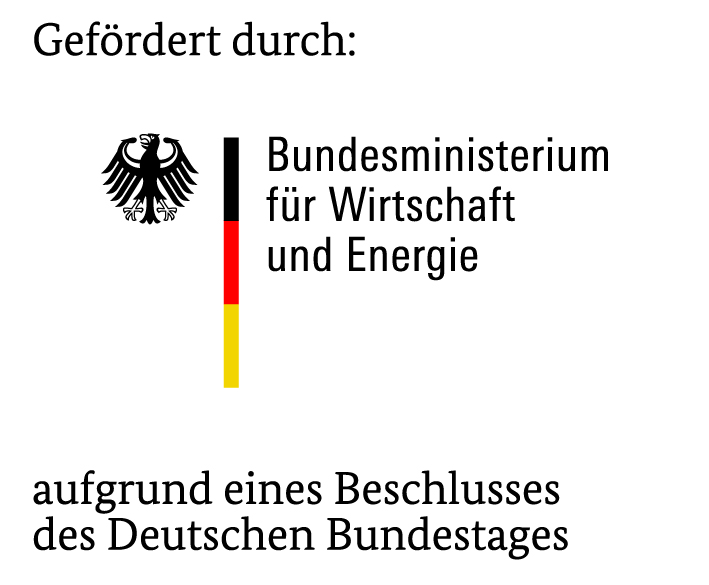REGULUS
Subject area:
Light Metals & Mechanical Testing
Responsible Employees:
Prof. Dr.-Ing. Heinz Werner Höppel
Daniel Elitzer (M. Sc.)
Annalena Meermeier (M. Sc.)

Ecolution of the strength of (a) conventional-, (b) plasma-arc- and (c) WAAM- manufactured components and belonging microstructure.
TiAl6V4 (Ti-64) is one of the most commonly used alloys in aerospace industry. Nowadays, structural parts are milled from solid blocks. This results in a degree of machining of up to 96%. Thus, aerospace industry is in need of an advanced technology, which improves the ecological footprint and the costs for structural parts. This becomes even more important as the market demand is increasing steadily.
A promising possibility for a resource efficient production is wire arc additive manufacturing (WAAM). With this technique, it is feasible to decrease the lead-time, save energy and reduce the material loss to 7-20%. Unlike SLM or EBM processes it is feasible, to produce at significantly higher application rates and higher volumes. Another advantage is the saving of further processing steps, like roughing and HIPing.
In cooperation with TU Munich and the companies Aircraft-Philipp, Boeing, Heggemann, Software Factory and Fronius, test specimens with different parameter setups were produced. The development of a stable process is achieved by investigating the development of mechanical properties by means of tensile, compression and fatigue tests. To meet the high requirements of the aerospace industry, the results obtained are compared with microstructural analyses by SEM, FIB and EBSD.
First results confirm that WAAM achieves mechanical properties that are very close to the required values and is therefore a very promising way for producing high quality titanium parts.
The research project REGULUS is funded by the Federal Ministry for Economic Affairs and Energy (BMWi) (grant number 20W1709D) and supervised by the German Aerospace Center e. V.
